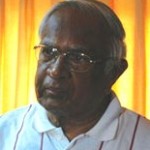Hybrid Constitution Comes Home To Roost
The Supreme Court in a judgment delivered last week (21/02/2014) said that the Court of Appeal possessed no jurisdiction in terms of Article 140 of the constitution to review a report of a Select Committee of Parliament constituted in terms of Article 107(3) of the Constitution read with order 87A (2) of the Standing Order of Parliament or to grant and issue an order in the nature of a Writ of Certiorari purporting to quash the report and findings of a Parliamentary Select Committee on the basis that it was not properly constituted. The five-judge bench of the Supreme Court set aside the impugned judgment of the Court of Appeal dated January 7, 2013. The application filed by the petitioner respondent Dr. Shirani Bandaranayake in the Court of Appeal, shall stand dismissed due to lack of jurisdiction.
The concept of supremacy of Parliament is a principle in the Westminster system of government but not in a presidential form of government where the principle of separation of powers operates. Unfortunately PresidentJ.R Jayewardene in 1978 adopted a hybrid Constitution taking disparate principles from the two forms of government and mixing them to strengthen the power of Parliament. But under a system of political parties where the Executive President is elected from the ruling political party, he gets the control of Parliament as well. In presidential forms of government there is a clear separation of the composition of the three arms of the State. The Executive Presidency is assisted by Ministers who are not drawn from Parliament. In France where the presidential system prevails, the Ministers if appointed from Parliament cease to have voting rights in the Parliament. Of course the Judiciary is independently appointed although the President may formally issue the letter of appointment.
The Founding Fathers in USA who understood how fickle the people are, opted for a single elected leader as Chief Executive and gave him the power to appoint to his Cabinet persons of proven capability who will not have to pander to voters since they are not elected. So US Presidents have appointed as Ministers outstanding men who were either professionals or Academics but who invariably had management experience in the large private sector organizations that country has a surfeit of. Even France and Japan appoint men with considerable management experience to be Ministers. In France ministers are appointed from retired Public Officials, men of the Grande Ecole, the prestigious French academic institution as well as from the Parliament. As a safeguard against populist decision-making and also to ensure accountability by them the Ministers so appointed have no vote in Parliament and are summoned before Parliamentary Committees to answer for their acts of commission or omission. Unfortunately we did not accept this safeguard for reasons of political expediency.We have not appointed persons of sufficient education with experience in any sphere of government as Ministers. The Singapore government consists of several Phds. Hardly any Minister has only a mere secondary school certificate. How can a modern State be run by persons who lack sufficient education?

